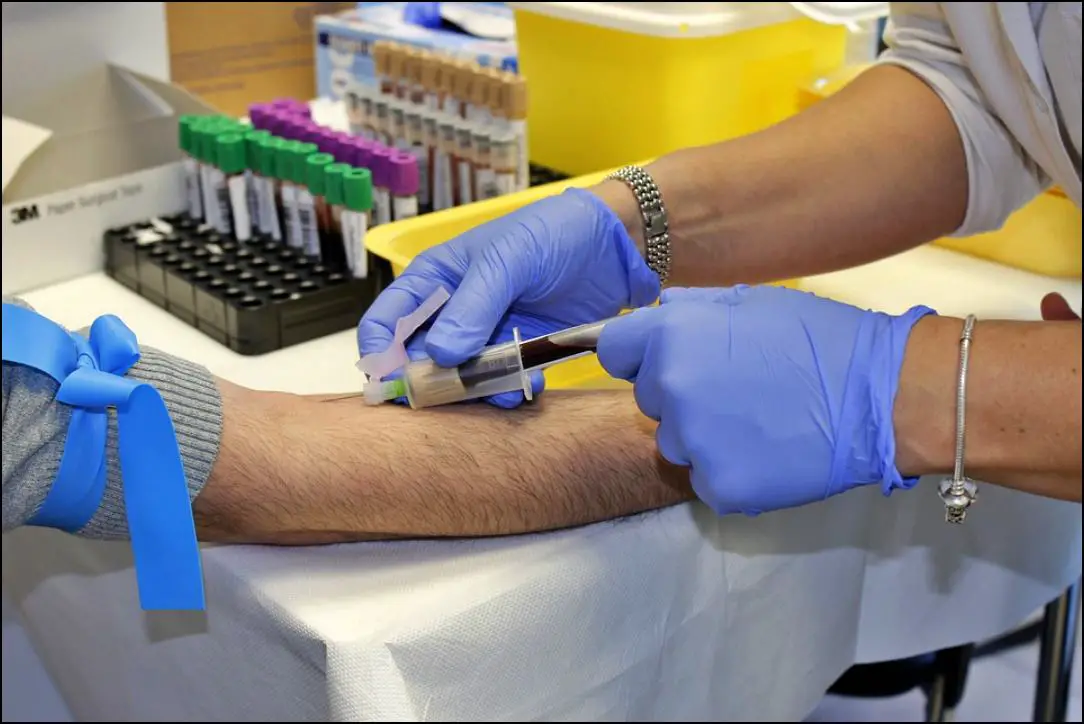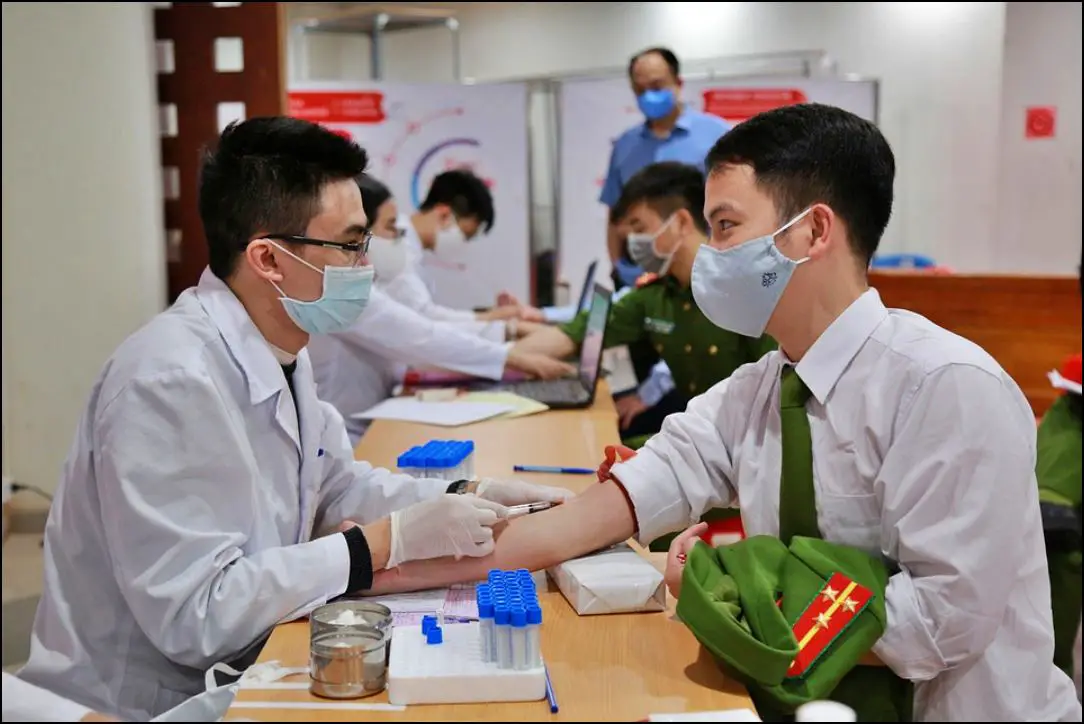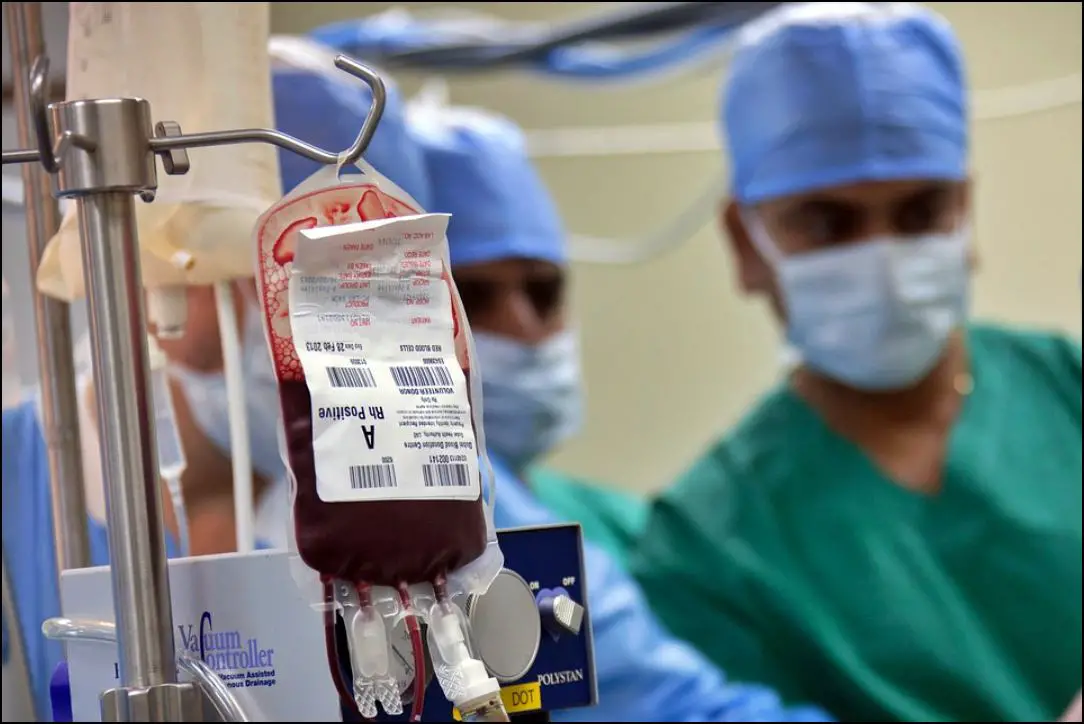Finding a reliable hematologist or blood bank when you need one can be daunting task, especially if your in an unfamiliar city. If you’re looking for trusted and specialized care in Cebu City, then look no further. In this blog post we’ll take a look at the list of hematologists and certified blood banks in the area to make your search easier. So if you’re concerned about access to quality medical support for any number of related illnesses such as anemia or cancer treatment — this is definitely one article you don’t want to miss.
Also Read: Southwestern University Medical Center Maternity Package
In Cebu, a bustling and lively city in the Philippines, the importance of hematologists and blood bank centers cannot be overstated. Hematologists, medical professionals specializing in diseases and disorders of the blood, play a crucial role in the diagnosis and treatment of various blood-related conditions that affect the lives of countless individuals. Meanwhile, blood bank centers serve as vital lifelines for those in need, whether it’s for life-saving surgeries, medical treatments, or emergencies.

The collaboration between hematologists and blood bank centers in Cebu is essential for maintaining and improving the overall health and well-being of its residents. As the city continues to flourish and evolve, these medical professionals and establishments are dedicated to offering exceptional care and support, ensuring that anyone in need of blood-related services can access them without difficulty.
What is a Hematologist?
A hematologist is a medical doctor who specializes in the diagnosis and treatment of blood diseases, including cancers such as leukemia, lymphoma, and myeloma. They also specialize in diagnosing and treating anemias (low red blood cell count), thrombocytopenia (low platelet count), hemophilia, sickle cell disease, and other blood disorders.

The Life-Giving Power of Blood Donation
Blood donations are vital to the health. Without these generous donations, countless people would be unable to receive the medical treatments that they need. That’s why it’s so important for everyone in Cebu to know about the various blood banks in their area — to ensure that individuals have access to safe, reliable sources of blood if needed.

List of Hematologists and Blood Bank Centers in Cebu City
We have compiled a list of top hematologists and blood bank centers in Cebu to help you find the best medical care available. Whether you are looking for specialized treatment or just need some additional advice, these medical professionals can provide you with all the necessary knowledge and resources to make informed decisions about your health.
Dr. Maita L. Rodriguez
Address: 85, Visayas Community Medical Center, Osmena Boulevard, Santa Cruz, Cebu City, 6000
Phone: (032) 253 1901
Hours: 10 AM–2 PM (Monday – Saturday)
VSMMC Blood Services Unit – Satellite
Located in: Vicente Sotto Memorial Medical Center (VSMMC)
Address: VSMMC Nurses’ Home, Osmeña Blvd, Cebu City, Cebu
Phone: (032) 255 3802
Eastern Visayas Regional Blood Center
Address: JRDC Bldg, 102 Osmeña Blvd, Cebu City, 6000 Cebu
Phone: (032) 253 4611
Subnational Blood Center for Visayas
Address: Cebu South Road, Cebu City, Cebu
Phone: 0922 215 2471
Hours: Open 24 Hours
Chong Hua Hospital Internal Medicine Department – General Medicine, Uy, Reginita M.D.
Address: Room #302, Chong Hua Medical Arts, Chong Hua Hospital, Fuente Osmeña, Cebu City, Cebu
Phone: (032) 253 2351
Dr. Socrates Villamor
Address: 7VXW+JWP, Osmeña Blvd, Cebu City, 6000 Cebu
Phone: (032) 253 6355
Reigonal Blood Center -Region 7
Located in: Vicente Sotto Memorial Medical Center (VSMMC)
Address: Club Ultima, 819 Osmeña Blvd, Ramos, Cebu City, 6000 Cebu
Dr. Rodriguez, Maita
Address: Perpetual Succour Hospital, Gorordo Avenue, Cebu City, Gorordo Ave, Cebu City, 6000 Cebu
Phone: (032) 238 7755
Philippine Red Cross, Cebu Chapter
Address: 8V6R+XQ5, Osmeña Blvd, Cebu City, Cebu
Phone: (032) 328 9238
Hours: 8 AM – 6 PM (Monday, Tuesday, Wednesday and Friday)
24 Hours (Thursday Only)
Margaret S. Modequillo, MD @ Cebu City Medical Center
Address: 7VWR+XG5, Cebu City Medical Center, N. Bacalso Avenue, Cebu City, Cebu, Cebu City
Phone: (032) 255 7141
People’s Medical Clinic
Address: 126, M. Logarta Street, Cebu City, 6000 Cebu
Phone: (032) 255 5438
Dr. Lepatan, Lynda Mae
Address: Perpetual Succour Hospital of Cebu Incorporated, Gorordo Avenue, Cebu City, Cebu, Gorordo Ave, Cebu City, 6000 Cebu
Phone: (032) 233 8620
Ma. Asuncion Hipolita Libre B. Dr, MD
Address: 85 Osmeña Blvd, Cebu City, 6000 Cebu
Phone: (032) 253 1901
Dr. Roger Forroza
Address: 1st Room Basement, Chong Hua Medical Arts Fuente 712 Chong Hua Medical Arts Mantawe Ave, Mandaue City, Fuente Osmeña Cir, Cebu City, 6000 Cebu
Areas served: Cebu City and nearby areas
Phone: 0922 880 0234
Hours: 9 AM–5 PM (Monday – Friday)
10 AM–1:30 PM (Saturday)
Elda Grace G. Anota, MD
Address: Perpetual Succor Hospital, Gorordo Avenue, Cebu City, Gorordo Ave, Cebu City, 6000 Cebu
Phone: (032) 233 8620
The Hematology-Oncology Department – Chong Hua Hospital
Located in: Chong Hua Hospital
Address: 8V5R+XC9, Chong Hua Hospital, Rosal Street, Cebu City, 6000 Cebu
Phone: (032) 255 8000
Life-Line Blood Bank
Located in: Prime Comercial
Address: 8V5R+84P, B. Rodriguez St, Cebu City, 6000 Cebu
Phone: (032) 255 3806
Braulio E. Sto. Domingo, MD @ Perpetual Succour Hospital of Cebu Incorporated
Address: 8V7X+RQ7, Gorordo Ave, Cebu City, 6000 Cebu
Phone: (032) 233 8620
Philippine Red Cross – Lapu-Lapu/Cordova Chapter
Address: Hoops Dome, Door 4, Bldg, Lapu-Lapu City, 6015 Cebu
Phone: (032) 495 2402
Hours: 8 AM – 5 PM (Monday – Friday)
Bloodworks (RAIL) Lab Cebu
Located in: Axis Entertainment Avenue
Address: 2/F Axis Entertainment Avenue, Vibo Place, N Escario St, Cebu City, Cebu
Phone: 0917 629 4518
Hours: 8 AM – 5 PM (Monday – Saturday)
Philippine Red Cross – Northern Cebu Branch
Address: 2XWH+F7M, Bogo City, Cebu
Hours: 8 AM – 5 PM (Monday – Friday)
Lifebank Foundation, Inc
Address: 8V5X+X98, 408 Singson St, Cebu City, 6000 Cebu
Taking Care of Your Body: Essential Tips for Proper Blood Care
No matter who you are or where you live, proper blood care is essential for your health and wellbeing. Here are some tips to keep in mind to help ensure that your body is getting the necessary nutrients it needs on a regular basis:
1. Eat a balanced diet full of fresh fruits and vegetables

2. Exercise regularly

3. Make sure to get enough rest

4. Avoid excessive alcohol consumption or smoking

5. Know your family’s history of blood conditions, so you can be better prepared if a problem arises

5 Bad Habits that can Lead to Blood Disorders
Blood disorders, such as anemia, thrombocytopenia and hemophilia, are caused by a variety of factors. While there are some out of our control (such as genetics or medications), many cases of blood problems arise from hazardous lifestyle habits. Here is a list of five bad habits that can lead to blood disorders:
1. Eating an Unhealthy Diet
A diet high in processed foods, saturated fat and cholesterol, and low in vitamins and minerals can put stress on the body’s ability to make healthy blood cells. Eating a balanced diet of fresh fruits and vegetables, lean proteins, whole grains and healthy fats helps support a healthy blood flow.

2. Smoking
Nicotine and other toxins can interfere with the body’s ability to make red blood cells, which carry oxygen throughout the body. Studies have also found that smokers are more likely to be anemic than nonsmokers due to decreased iron absorption in their bodies.

3. Drinking Excess Alcohol
Consuming large amounts of alcohol can lead to a number of blood-related problems, such as anemia, thrombocytopenia and liver disease. As the liver is responsible for filtering toxins from the body, excessive drinking can put this important organ at risk.

4. Not Getting Enough Sleep
Sleep is essential for the body to regenerate and rest, so not getting enough can significantly impact blood health. Research has found that lack of sleep can lead to decreased iron absorption and can increase the chances of anemia.

5. Not Exercising Regularly
Exercise helps keep the heart strong and capable of pumping blood throughout the body efficiently, as well as helps keep cholesterol levels low. Not getting enough exercise can put strain on the cardiovascular system and lead to a variety of blood-related issues.

List of Blood Disorders
1. Anemia – a decrease in the total amount of red blood cells or hemoglobin in the blood, which can cause fatigue and weakness.
2. Leukemia – an increase in white blood cell production, which can interfere with the body’s normal functioning.
3. Thalassemia – a genetic disorder that results in an inability to produce normal levels of hemoglobin.
4. Hemophilia – a condition that causes the body to be unable to form adequate blood clots, leading to excessive bleeding following an injury or surgery.
5. Sickle Cell Anemia – an inherited disorder that causes red blood cells to become misshapen and have difficulty moving through small vessels, leading to pain and organ damage.
6. Aplastic Anemia – a condition where the body stops making enough new red blood cells, resulting in anemia.
7. Myelodysplastic Syndrome (MDS) – a disorder in which the bone marrow does not produce enough healthy red and white blood cells or platelets, leading to anemia and other complications.
8. Immune Thrombocytopenia – a condition in which the body produces too few platelets, resulting in prolonged bleeding from minor cuts or bruises.
9. Primary Myelofibrosis – a disorder that causes scar tissue to form in the bone marrow, preventing it from producing enough healthy blood cells.
10. Multiple Myeloma – a type of cancer that affects the plasma cells in the bone marrow, leading to anemia and other complications.
VIDEO: What food to eat to help lower your blood pressure
Please watch this video to learn more about foods that can help lower your blood pressure.
Summary
Ensuring the well-being of yourself and your loved ones is of utmost importance, and one valuable aspect of this is taking proper care of blood health. Becoming knowledgeable about blood care tips not only enhances personal health, but it also enables you to be a reliable support to those around you. By understanding how to maintain healthy blood pressure levels, consume a balanced diet rich in iron, vitamins, and minerals, and stay active with regular exercise, you can significantly improve your quality of life.
Engaging in practices such as donating blood, learning crucial first aid skills, and scheduling routine medical check-ups contribute to reinforcing a strong network of care for both yourself and those you deeply care about. By embracing an awareness of blood care, you are taking a vital step towards ensuring the health and happiness that you and your loved ones deserve.